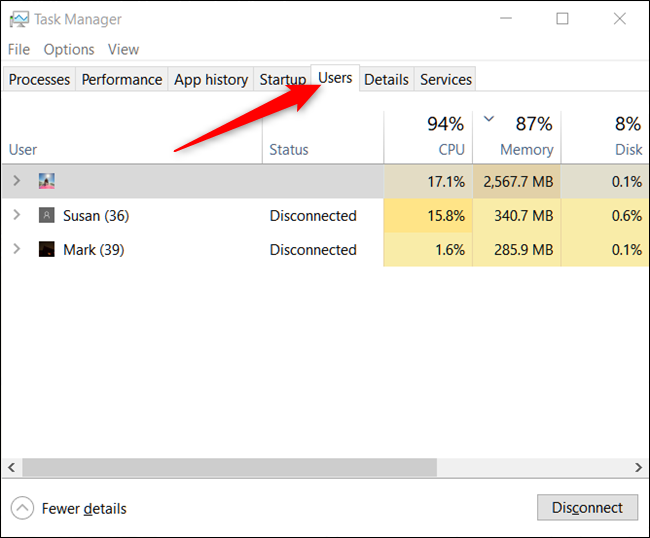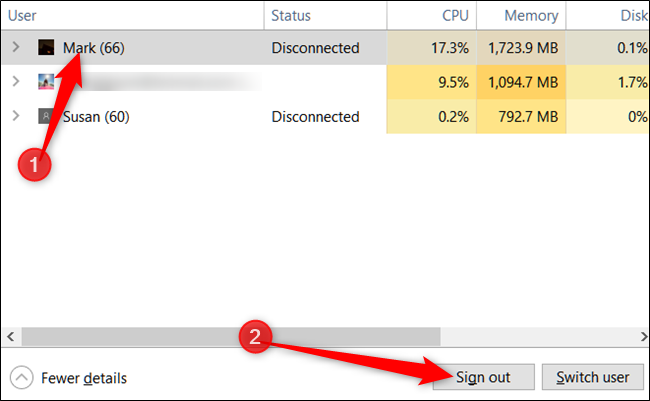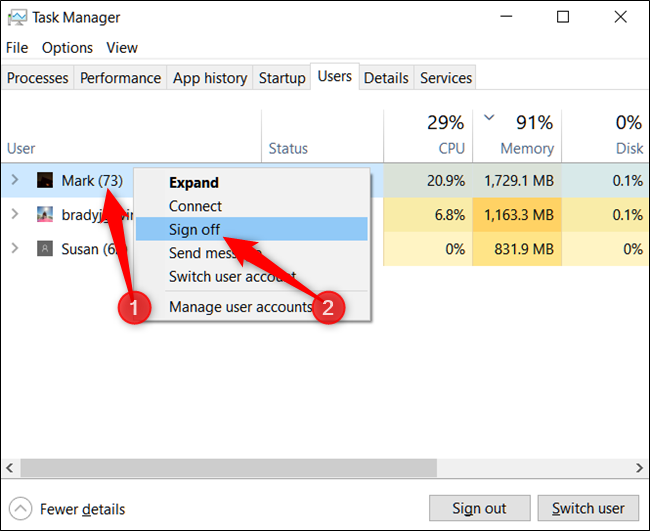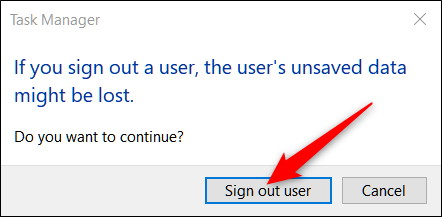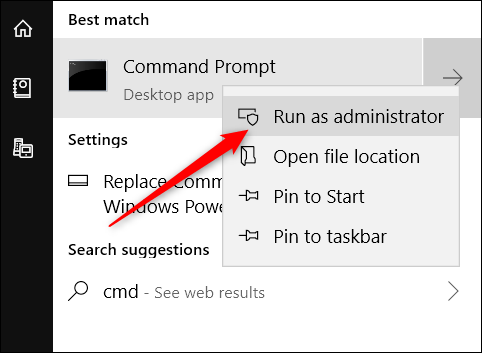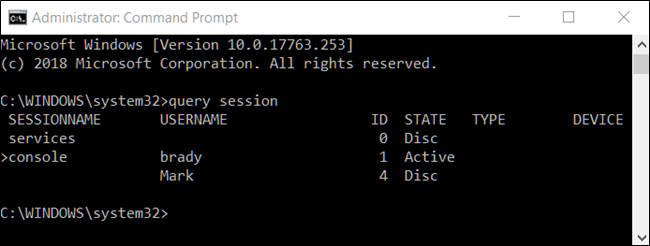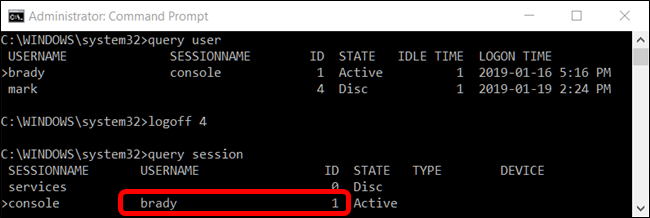Quick Links
Windows supports multiple accounts on the same device. If someone forgets to sign out of their account, their profile still runs processes and consumes resources in the background. Here's how you can sign out other users on the same computer.
How to Sign Out Other Users
When a user locks their account, the computer returns to the sign in screen but leaves their account signed in and running all their programs and processes in the background. This could be problematic for other people using the computer. You can sign out other users either with Task Manager or the Command Prompt, and we'll walk you through both methods.
Note: To sign another user out of your device you must be using an account with administrator privileges.
Using Task Manager
Open up Task Manager by pressing Ctrl+Shift+Esc, then click the "Users" tab at the top of the window.
Select the user you want to sign out, and then click "Sign Out" at the bottom of the window.
Alternatively, right-click on the user and then click "Sign Off" on the context menu.
A prompt lets you know that any unsaved data on the user's account could be lost if you proceed. Only proceed if you know they won't lose any data. Click "Sign Out User."
Using Command Prompt
Open an elevated Command Prompt window by hitting Start, typing "cmd" into the search box, right-clicking the result, and then clicking "Run As Administrator."
At the prompt, type the following command to identify the users currently signed into the device:
query session
Each user has an ID associated with it. Here, Mark is the user we are signing out and his ID is "4."
Next, type the following command, but replace "ID" with the user's ID from the previous command:
logoff ID
So, to sign out Mark from our previous example, we'd type logoff 4 .
Command Prompt doesn't give you any alert or confirmation that the user has been signed out, but rerunning the first command shows you that the user is no longer listed.
Signing a user out this way has the same risks of losing all unsaved data they may have been working on; Command Prompt just doesn't warn you before running these commands. Make sure any user you sign out has saved all their work before you blindly terminate their session.


